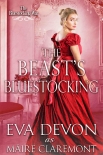Shirley, Charlotte Brontë [free children's ebooks online .txt] 📗

- Author: Charlotte Brontë
Book online «Shirley, Charlotte Brontë [free children's ebooks online .txt] 📗». Author Charlotte Brontë
“Tut!” said the imperturbable Yorke, “you make too much of it; but still, I say, I am capped. Firstly, that she did not love you; and secondly, that you did not love her. You are both young; you are both handsome; you are both well enough for wit and even for temper—take you on the right side. What ailed you that you could not agree?”
“We never have been, never could be at home with each other, Yorke. Admire each other as we might at a distance, still we jarred when we came very near. I have sat at one side of a room and observed her at the other, perhaps in an excited, genial moment, when she had some of her favourites round her—her old beaux, for instance, yourself and Helstone, with whom she is so playful, pleasant, and eloquent. I have watched her when she was most natural, most lively, and most lovely; my judgment has pronounced her beautiful. Beautiful she is at times, when her mood and her array partake of the splendid. I have drawn a little nearer, feeling that our terms of acquaintance gave me the right of approach. I have joined the circle round her seat, caught her eye, and mastered her attention; then we have conversed; and others, thinking me, perhaps, peculiarly privileged, have withdrawn by degrees, and left us alone. Were we happy thus left? For myself, I must say No. Always a feeling of constraint came over me; always I was disposed to be stern and strange. We talked politics and business. No soft sense of domestic intimacy ever opened our hearts, or thawed our language and made it flow easy and limpid. If we had confidences, they were confidences of the countinghouse, not of the heart. Nothing in her cherished affection in me, made me better, gentler; she only stirred my brain and whetted my acuteness. She never crept into my heart or influenced its pulse; and for this good reason, no doubt, because I had not the secret of making her love me.”
“Well, lad, it is a queer thing. I might laugh at thee, and reckon to despise thy refinements; but as it is dark night and we are by ourselves, I don’t mind telling thee that thy talk brings back a glimpse of my own past life. Twenty-five years ago I tried to persuade a beautiful woman to love me, and she would not. I had not the key to her nature; she was a stone wall to me, doorless and windowless.”
“But you loved her, Yorke; you worshipped Mary Cave. Your conduct, after all, was that of a man—never of a fortune-hunter.”
“Ay, I did love her; but then she was beautiful as the moon we do not see tonight. There is naught like her in these days. Miss Helstone, maybe, has a look of her, but nobody else.”
“Who has a look of her?”
“That black-coated tyrant’s niece—that quiet, delicate Miss Helstone. Many a time I have put on my spectacles to look at the lassie in church, because she has gentle blue een, wi’ long lashes; and when she sits in shadow, and is very still and very pale, and is, happen, about to fall asleep wi’ the length of the sermon and the heat of the biggin’, she is as like one of Canova’s marbles as aught else.”
“Was Mary Cave in that style?”
“Far grander!—less lass-like and flesh-like. You wondered why she hadn’t wings and a crown. She was a stately, peaceful angel was my Mary.”
“And you could not persuade her to love you?”
“Not with all I could do, though I prayed Heaven many a time, on my bended knees, to help me.”
“Mary Cave was not what you think her, Yorke. I have seen her picture at the rectory. She is no angel, but a fair, regular-featured, taciturn-looking woman—rather too white and lifeless for my taste. But, supposing she had been something better than she was—”
“Robert,” interrupted Yorke, “I could fell you off your horse at this moment. However, I’ll hold my hand. Reason tells me you are right and I am wrong. I know well enough that the passion I still have is only the remnant of an illusion. If Miss Cave had possessed either feeling or sense, she could not have been so perfectly impassible to my regard as she showed herself; she must have preferred me to that copper-faced despot.”
“Supposing, Yorke, she had been educated (no women were educated in those days); supposing she had possessed a thoughtful, original mind, a love of knowledge, a wish for information, which she took an artless delight in receiving from your lips, and having measured out to her by your hand; supposing her conversation, when she sat at your side, was fertile, varied, imbued with a picturesque grace and genial interest, quiet flowing but clear and bounteous; supposing that when you stood near her by chance, or when you sat near her by design, comfort at once became your atmosphere, and content your element; supposing that whenever her face was under your gaze, or her idea filled your thoughts, you gradually ceased to be hard and anxious, and pure affection, love of home, thirst for sweet discourse, unselfish longing to protect and cherish, replaced the sordid, cankering calculations of your trade; supposing, with all this, that many a time, when you had been so happy as to possess your Mary’s little hand, you had felt it tremble as you held it, just as a warm little bird trembles when you take it from its nest; supposing you had noticed her





Comments (0)